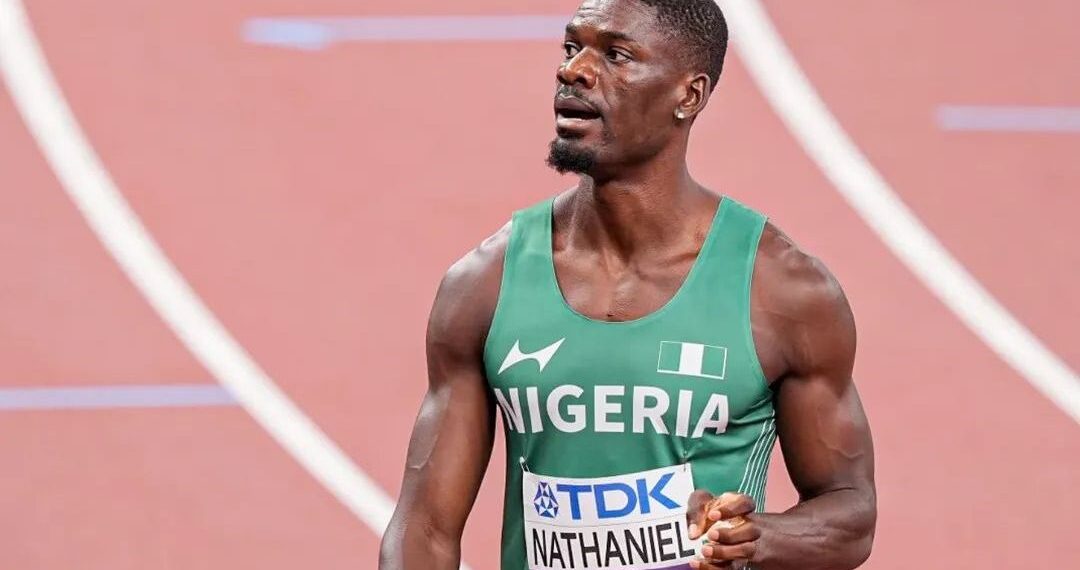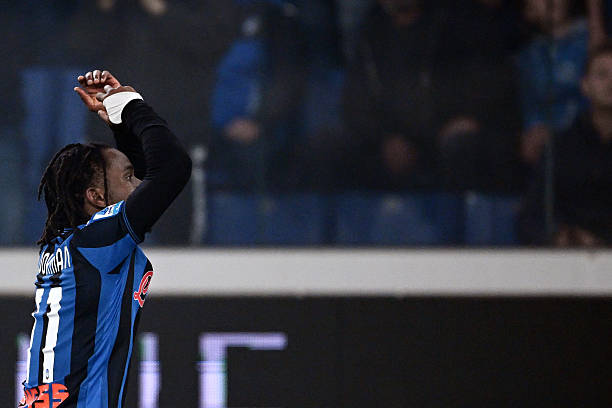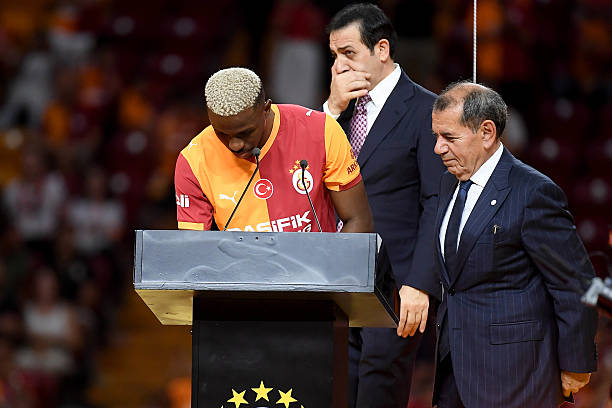For Nigerians and fans across West Africa, few sporting moments light up the atmosphere like an athlete breaking records on the global stage. On a historic evening in Tokyo, Ezekiel Nathaniel etched his name firmly into Nigerian athletics lore with a phenomenal performance in the men’s 400m hurdles final, capturing the attention of athletics enthusiasts from Lagos to Accra and beyond.
The 22-year-old from Nigeria stunned the world with his electrifying run of 47.11 seconds, not only smashing his personal best but also resetting the national record he himself had established earlier in the season. Although Nathaniel just missed a place on the podium—Qatar’s Abderrahman Samba clinched bronze with 47.06 seconds—his fourth-place finish marks the closest Nigeria has come to a World Championships medal in this event in nearly four decades.
The race itself was billed as one of the most competitive in recent history, featuring global powerhouses and record holders. American Rai Benjamin seized his long-awaited first world title, clocking a superb 46.52 seconds—an elusive gold after years of silver and bronze medals. He was followed closely by Brazil’s Alison dos Santos with 46.84 seconds. The much-favoured Norwegian, Karsten Warholm, who currently holds the world record, faced a shock setback as he clipped an early hurdle and finished fifth with 47.58 seconds.
Nathaniel’s presence in the finals speaks volumes about the steady, if sometimes underappreciated, progress of track and field in Nigeria and West Africa. According to the Athletics Federation of Nigeria, Nathaniel’s new national record of 47.11 seconds eclipses his own previous mark of 47.10, set only months earlier. But perhaps even more significant is the fact that he is the first Nigerian man to compete in a 400m hurdles final at the World Championships since Henry Amike’s memorable run in 1987—a full 38 years ago.
The tension on the track was palpable, especially after the final moments saw a dramatic twist. Rai Benjamin was momentarily disqualified for colliding with the last hurdle and veering perilously close to the neighbouring lane. However, the US team’s prompt appeal led to the reinstatement of his victory, a decision that Nathaniel took in stride. “It’s a fair call. He put in a lot of work to get that medal, and if they are trying to rip that away, I don’t think that’s fair. He didn’t deliberately knock over the hurdle — that could happen to anyone,” The Guardian quoted Nathaniel as saying after the race. His sportsmanship and calm acceptance in a tense moment reflect the maturity and professionalism that many Nigerian fans hope to see more of on the international stage.
Back home, the reactions came swiftly across social and traditional media. Viewing centres in cities from Abuja to Port Harcourt buzzed with pride. Athletics analysts and ex-athletes, such as Lagos-based track coach Ndubuisi Nwosu, believe Nathaniel’s progress is evidence of a new era. “We are seeing resilience and global competitiveness return to Nigerian athletics,” Nwosu told Vanguard Sports. “Nathaniel is inspiring a whole generation of young talents who now believe medals at the world stage aren’t out of reach.”
Indeed, Nigeria’s presence in the sprint hurdles—a once-rare feat at this level—has given many locals reason for optimism. The 400m hurdles is renowned for its unforgiving blend of speed, technique, and endurance. For several years, African athletes have faced a tough challenge breaking through the finals at the World Championships or Olympics, often dominating at continental meets but falling short on the world’s biggest stages.
For perspective, only a handful of West African athletes have ever reached this level in the 400m hurdles. Henry Amike’s feat in 1987 is often cited as the golden standard for Nigeria in the event, but for decades, the gap between local performances and global breakthroughs remained stubborn. Nathaniel’s achievement is now being hailed as a turning point, with the hope that more investment in youth development and training infrastructure—especially from government and private sponsors—will propel future talent to even greater heights.
Speaking to sports columnist Femi Abiru in Lagos, fans like Adaobi Nnenna described the race as a “game-changer for Nigerian morale in athletics.” “It’s not just about medals; it’s about seeing ourselves represented at the highest levels, competing elbow to elbow with the world’s best. Even if we missed the podium this time, the message is clear—Nigeria is back in the hunt.”
Regionally, the ripple effect extends across West Africa. Ghanaian track coach Owusu Agyeman, in an interview with Joy Sports, expressed hope that Nathaniel’s success would motivate federations throughout the region. “Every great African performance at this level helps inspire young athletes far beyond the borders of one nation,” he said. “It tells all our communities that global records and finals aren’t just for Europe or America—they’re for us too.”
On the women’s side, the championships delivered further excitement. Dutch star Femke Bol, widely celebrated for her consistent dominance, defended her world title in style with a world-leading 51.54 seconds. The USA’s Jasmine Jones soared to silver with a personal best of 52.08 seconds, while Emma Zapletova of Slovakia clinched bronze in 53.00, establishing a new national record for her country. While Nigerian women are still working toward making the finals in this marathon event, analysts are confident that the rising tide of domestic athletics bodes well for the future.
Globally, the men’s 400m hurdles has remained fiercely competitive, with athletes regularly pushing the boundaries of speed and endurance. For comparison, Kevin Young’s 1992 world record of 46.78 stood unchallenged until Warholm’s recent blitz of 45.94 in Tokyo, demonstrating the continued evolution of the sport. Observers believe that the increased investment in facilities and coaching in Africa could shorten the time between breakthrough performances—potentially placing West African athletes in medal contention with even greater frequency.
Yet, there remain challenges. Funding and access to consistent world-class training remain significant hurdles, as does the need for more youth-focused sporting programmes, especially in secondary schools and communities nationwide. According to sport development advocate Busola Salami, “For every Ezekiel Nathaniel who breaks through, there are thousands of young talents who just need the right support and environment to grow.” Salami urged both government and private sector sponsors to view Nathaniel’s feat as proof of the immense potential waiting to be harnessed
As celebrations continue, the focus shifts to the next major events—the All Africa Games, Commonwealth Games, and the Olympics. With Nathaniel joining a new vanguard of African athletes making their mark on the international stage, fans and experts alike are watching keenly to see if Nigeria—and West Africa—can convert newfound momentum into historic medals in upcoming seasons.
Nathaniel’s breakout performance in Tokyo is not just a story of national pride but an inspiration for countless aspiring athletes across Africa. His calm professionalism under pressure, progressive improvement, and record-setting run remind us that world-class talent exists on the continent, awaiting opportunities to shine. As investment in sports and grassroots programmes expands, there is optimism that stories like Nathaniel’s will become more common, reconnecting Nigeria and its neighbours to their storied athletics legacy.
What do you think of Ezekiel Nathaniel’s achievement and its impact on Nigerian and African athletics? Do you believe more investment is needed to support our rising track and field stars? Share your thoughts in the comments below and don’t forget to follow us for all the latest sports updates!
For support or general enquiries, reach out anytime at support@nowahalazone.com.
Connect with us on social media for more updates and behind-the-scenes content: Facebook, X (Twitter), and Instagram.
Join the conversation—your voice matters!









